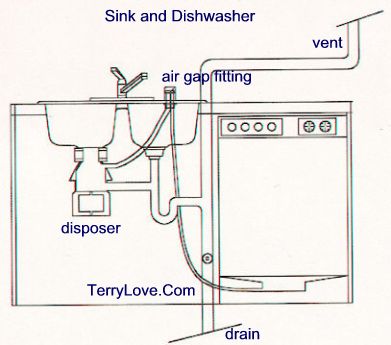I understand a dishwasher air gap, on the drain side, protects unsanitary water from getting back into the dishwasher and contaminating dishes.
My dishwasher is not next to the sink. It is in an island. It's about 12 years old and I will assume it has a high loop or built-in air gap to protect the water supply line side of things.
Could someone please explain what happens when the drain air gap needs to kick in? This happens when there's restricted flow or a clog in the drain line?
I'm concerned about where the drain water that it stops from backing into the dishwasher goes. Into the sink when directly attached? Onto the floor in my case if an air gap were to be installed? Without an air gap it would just back up into the dishwasher if there were a problem?
Thanks.

My dishwasher is not next to the sink. It is in an island. It's about 12 years old and I will assume it has a high loop or built-in air gap to protect the water supply line side of things.
Could someone please explain what happens when the drain air gap needs to kick in? This happens when there's restricted flow or a clog in the drain line?
I'm concerned about where the drain water that it stops from backing into the dishwasher goes. Into the sink when directly attached? Onto the floor in my case if an air gap were to be installed? Without an air gap it would just back up into the dishwasher if there were a problem?
Thanks.

Last edited by a moderator:
